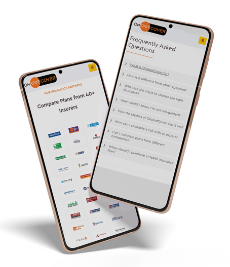What is Term Insurance
Term in the term life insurance stands for the policy duration or the certain age duration for which you can take your insurance for. Term life insurance is the simplest form of insurance that financially helps the family of the deceased during the vulnerable time of their life after the timely/untimely death of the insured by providing the monetary support to deal with the debt and other situations. The sum assured of the term insurance is provided to the nominee after the demise of the insured during the policy tenure by different modes as per their future needs. There are no twisted and complicated policy terms to understand in term life insurance.
Features and Benefits of Term Insurance
Since we all are always tight on budget and still want to invest a part of our incomes for financial safety purposes of our loved ones in case of any mishappening, term insurance is the best out of all to fit your pocket and offers a high sum insured. These are best suitable with our restricted incomes and especially when you are the sole bread earner of your family. Here are some key features and benefits of term insurance.
After the demise of the policy holder the nominee gets either the sum assured amount or he/she can avail the facility to get a certain sum at the end of each month to meet the daily expenditure.
Term insurance is easily comparable as they are mostly evaluated based on the market price.
The common belief with insurance is that the higher the premium, the higher will be the tax benefit. Since premiums for the term insurance are generally low, as it is subsequently divided for the longer duration that makes it more affordable to the people. It is also covered under section 80C of the Income Tax Act.
The key feature of term insurance is that cover amount majorly depends on your annual income. Generally companies offer upto 20-25% of the annual income of the policy taker. If you have an annual income, for say, Rs 5lacs then you can get the cover amount till Rs 1 crore. If your income increases with time, then the policy holder can increase the cover amount by add top-ups in the current policy.
Term life insurance can be the substitute to cover all the loan and liabilities the families face after the demise of the insured so that family members are not under instant pressure to deal with the emotional, personal and monetary loss at the same time.
The premium value mainly depends on the age of the policy taker, his/her health conditions and some other vital factors. As the age increases, the other health factors also increases. So, the premium subsequently rises with the increase in age.
Affordability
Term insurance is the most pocket-friendly and economical investment solution that is feasible to all income groups.
Payout Flexibility
Nominee can choose the mode of payout as per their financial needs to get monthly fixed ratio to meet their daily needs or to get the full sum assured at once to meet all the liabilities.
Personalization
Policy holder can personalize their term-end return of premium and can choose top ups to add other benefits in the existing policy to enhance the end benefits like accidental death benefit, critical illness etc.
Early Entry
Early age entry allows premium benefits throughout the policy tenure to get the benefit of low premium rates
Term Insurance Additional Benefits (Riders)
Term Insurance riders are the additional benefits or top-ups available to the insured person along with the base policy benefits at a minimal cost to gain the maximum benefits at economical price range. Riders vary from person to person as per their risk factors to extend the criteria of protection.
Types of Term Insurance
Term insurance is modified in different formats to cater the needs of the customer.
-

Pure Term Plan
is the primary term insurance plan where the insured pays the premium of the policy and the family/nominee gets the premium benefit after the demise of the insured before the end of the policy tenure.
-

Return of Premium Plan
It is a type of policy cover that allows the insured to get the premium back on survival after the maturation of the policy. The premium accumulated is a huge amount which can be used by the policy holder as a means of savings to meet expenditure or to further invest.
-

Decreasing Term Insurance
This policy plans has the lowest amount of premiums as the overall sum assured keeps decreasing annually with a pre-mentioned rate. In this way, companies have low amount and risk to cover at later stages so they offer very low premiums. These plans are often bought by individuals who have bought major loans such as home loan, education loan etc. to meet the leftover liabilities after the consistent payments of installments.
-

Increasing Term Insurance
This policy plans is the complete opposite of the Decreasing term insurance plan. It has the high premium as the overall sum assured keeps increasing annually with a pre-mentioned rate. These are often bought to cover the major child education and marital expenses or other significant financial goals. The overall premium rates may remain same in certain cases.
-

Convertible Plan
This policy allows the freedom to the policy holders to switch to any other policy plan such as endowment or whole life insurance after keeping the term insurance for certain duration. The paid by the insured are all tax exempted under the 80C section of Income Tax Law. Furthermore, the sum assured received by the nominee will also be tax exempted.
FACTORS THAT AFFECT PREMIUM
Age
Young age benefit is a key feature in the term insurance to avail low premium rates for the insurance. As it is believed that, young people are less immune health risks and can recover easily. That’s why companies offer low premium rates at young age which is an optimum time to avail this benefit.
Gender
As it Is a common notion observed after series of research that women tends to have high life expectancy than men. On the basis of this factor, companies offer low premium to women as compared to men.
The Policy
The premium rates depends on the duration of the policy. The long term policies have low premiums as it ensures company to get revenue for a longer duration whereas companies offer high premium amount for the short-term policies as the risk involved and other factors are more prominent in such cases.
Medical History
Personal health concerns is one of the crucial factors which is considered by the companies while locking term insurance premium whereas the family health history generic and non-generic both matters equally as well.
Eligibility Criteria for Term Insurance
Age
For being eligible to take term insurance the minimum authorized age is 18 yrs and can be availed till the age of around 60yrs.
Medical underwriting
The Person willing to take the policy must undergo a prescribed medical test so that the insurance company can get the clarity of potential health risks and can decide fairly on the premium amounts.
Policy term
The base or the least policy duration which companies allow to the people is generally 5yrs and can be forwarded to the 75yrs and whole life.
Premium Payment
Premiums are directly impacted by the age and health of the policy taker. The companies commonly provide various modes to provide payment such as monthly, quarterly, half yearly and so.
Financial underwriting
Insurance company keeps a background check on your income by having a detailed look on the Form 16 for the last financial year or last 3 months’ salary slips or ITR4 Form for Tax Filing for businessmen.
Conclusion
It is of utmost importance to select the right term insurance as per your family prospects and potential income sources for your family. Thorough research and all the other add on features should be considered while buying term insurance. Term-end insurance is the best insurance type if you are investing now for your family's future financial security.
Tips to buy term insurance
Onspot is the one place comparison point where a multitude of term insurance types and various authorised brands are provided to make your policy buying experience easy, quick and hassle-free.
Thorough assessment - Each family has its own living pattern and their revenue and expenditure vary. It is vital to thoroughly analyse the financial aspects of your family before finalising the sum assured of the policy as it will be the amount that your family will get. So, it should be sufficient for them to meet their financial needs for as long as possible.
Premium - Getting a lucrative sum assured seems a need of every policy taker but the premiums are also dependent on these. So, while setting the premium consider, calculate and assess the following points in your mind so that premium won't become a burden on your today.
- current revenue structure.
- No. of dependants in your family.
- loans and liabilities.
- Average expenditures and other major expenses.
Insurer efficiency - Selecting the best and trusted insurer surely seems like a task when there are tons of insurance providers out there. But researching about the insurance agency is vital before buying a policy. As the sole purpose of taking a policy is to get a timely claim settlement at the time of the need. That's why companies with high claim settlement ratios and amount settlement ratios should be your priority.
Easy modifications - CAs life moves ahead, you will grow exceptionally in your career field. Hence, your income will also grow and you would like to increase the premium amount to overall increase the value of the sum assured. So, opting for a policy which allows easy modifications as per your need will be a wise choice to make.
Documents required for Term Insurance
With term insurance, you are ensuring protection. Long term protection being your sole motive to invest in term insurance requires certain documentation to make the policy purchasing and claim issuance process quick and hassle-free.
- Copy of passport.
- Copy of Voter's ID issued by Election Commission.
- Copy of Driving License.
- NREGA issued job card signed by an official in the -State Government.
- Copy of Aadhaar Card.
- Any identity card containing photograph of the applicant issued by any Department of the State or Central government, Regulatory Authority, Public Sector Undertaking, or Public Financial Institutions.
- Utility bills provided by any service provider. (Not older than 2 months)
- Electricity bill, telephone bill, post-paid mobile phone bill, water bill, piped gas bill.
- Tax receipt for a property or one provided by Municipal Corporation.
- Bank account statement or saving account in the post office.
- Any pension or family pension orders issued by Central or State government departments. (Address should be mentioned on it)
- Document containing address issued by Government departments of the jurisdiction of other countries and also any letter issued by the Foreign Embassy of India.
- Accommodation allotment letter provided by an employer which is in turn issued by State or Central Government departments, any Regulatory bodies, Public Sector companies, Commercial banks with scheduled status and any financial institutions.
Apart from the aforesaid documents, an application might also need to submit KYC related information on submission of application form or at the time of payment for the policy.
- Latest Salary Slip.
- Income Tax Return for previous 2-3 years.
- Latest Bank statement showing salary credit.
- CA's certificate showing income for the last 3 years.
- Latest Form 16.
Along with all these, an application will also be required to submit KYC details at the time of payment.
Apart from the above mentioned common documents required by the insurance company, there might be some more documentation required by the insurance company, depending on the scenario to support your application processing. X-rays, medical reports and discharge letter might be required if you have undergone medical treatment in the last few years. These documents can be attached to your application via any of the above-mentioned methods of document submission. If insurance companies feel there is a need for a medical examination then they will fix an appointment for you as per your convenient day and time and the results of those tests would be sent directly to them for processing.
Reminder: Be precise and add all the required documents from the bills to medical reports. Around 2-3% of the claim reports don't get through each year because of such issues. In case of any doubt, always reach out to the insurance company.
Documents submission
There are numerous methods via which one can submit the documentation whichever is feasible for them to opt for.
Whatsapp - Get in touch with us over whatsapp and share your documents over there and we will do the documents updation process for you
Web Login - Directly login to the insurance company login portal and upload documents directly.
Email - scan and draft an email to the insurance company to submit your documents under your application.
Hardcopy - you can physically visit the nearby branch of the insurance company and submit the hard copies of all the documents or courier them to their office address.




